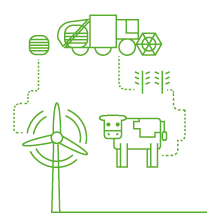20 – 24 July 2020 is National Farm Safety Week.
National Farm Safety Week is held each year to raise awareness of farm safety issues across Australia.
Gerard O’Brien, Director at RSM in Albury, having been a farmer himself for over 30 years, has a comprehensive understanding of the issues faced by those in the agricultural sector. In acknowledgement of National Farm Safety Week 2020, Gerard has discussed some of the most common hazards on farms and shared some tips to mitigate the risk.
Quad bike safety
From 11 October 2020, all new quad bikes will be required to be tested for lateral static stability, and display the angle at which the quad bike tips onto two wheels on a hang tag at the point of sale.
From 11 October 2021, new quad bikes (all-terrain vehicles) will need to meet minimum stability requirements and have rollover protection devices fitted.
Major manufacturers Honda, Yamaha, and Polaris have recently announced that the new quad bike regulations will force them from the Australian market.
Working improvements & Livestock
Safe Work Australia has created a comprehensive document that provides a guide for managing the risks of cattle handling.
Safe farm practices:
1. Operating Plant and Implements
An important risk mitigation factor in using farm machinery is to ensure that manufacturers recommended usage limits and warnings are followed; this includes operating within the capacity constraints of the equipment, maintaining recommended servicing intervals and being mindful of your surroundings (power lines, steep inclines, public roads, etc.)
Specific plant items to avoid risks around include:
- Grain augers
- Grain bag Inloaders and Outloaders
- Power Take Off (PTO) implements
- Workshop equipment such as welders and grinders
2. Confined Spaces and Safety
Extreme care should be taken when operating in confined spaces- namely silos. Farmers should wear appropriate breathing apparatus, protective clothing, and eyewear when in confined spaces, they should also have a companion to ensure that, in the event of any incident occurring, help is nearby.
3. Chemical Handling and Usage
Appropriate care must be taken when using any chemicals on the farm. Protective clothing including masks, protective eyewear, and gloves should always be used.
Care should also be taken to ensure that when applying chemicals in a field application that appropriate awareness of the prevailing weather conditions are taken into account.
4. Personal Safety and Communication
Farmers should always ensure that they have some form of communication- phone, UHF, etc. available as a safety measure, particularly when working alone. They should also let their family member or associate who may be on the farm know what their activities for the day will include so if a problem occurs, someone will know where to find them.
If you have any questions regarding farm safety measures, please get in touch with one of our specialist agribusiness advisers or visit the Safe Work Australia website.

